
Scoring above 90 in the NIOS or National Institute of Open Schooling exams may sound difficult to some, but with the right approach, it’s absolutely within reach.
Unlike traditional schooling exams, NIOS exams give students the flexibility to learn at their own pace, which can be a huge advantage if used wisely.
Whether you’re aiming for high marks to build a strong academic foundation or preparing for competitive exams later, the key lies in smart preparation.
Let’s walk through proven strategies that can help you achieve a 90 score in NIOS with confidence.
Contents
- How to Score 90 in NIOS Exams?
- 1. Understand the NIOS Exam Pattern Thoroughly
- 2. Go Through the NIOS Syllabus Carefully
- 3. Use NIOS Guidebooks and Reference Materials
- 4. Create a Practical and Balanced Study Schedule
- 5. Focus on the Previous Year Question Papers
- 6. Practice Writing Full-Length Answers Daily
- 7. Revise Regularly and Track Your Progress
- 8. Take Mock Tests to Boost Exam Confidence
- 9. Stay Motivated and Mentally Prepared
- Conclusion
How to Score 90 in NIOS Exams?
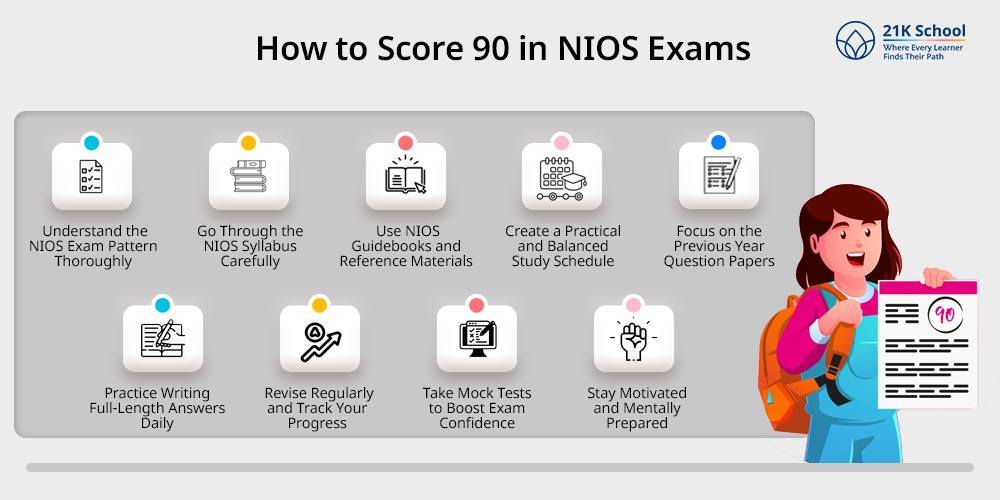
To score above 90 in any NIOS subject, consistency, clarity, and exam-oriented study methods are crucial. You don’t need to be a topper from the start but what you need is a plan that works, and the discipline to follow it.
Here are the effective and easy 9 strategies for scoring 90 in NIOS exams.
1. Understand the NIOS Exam Pattern Thoroughly
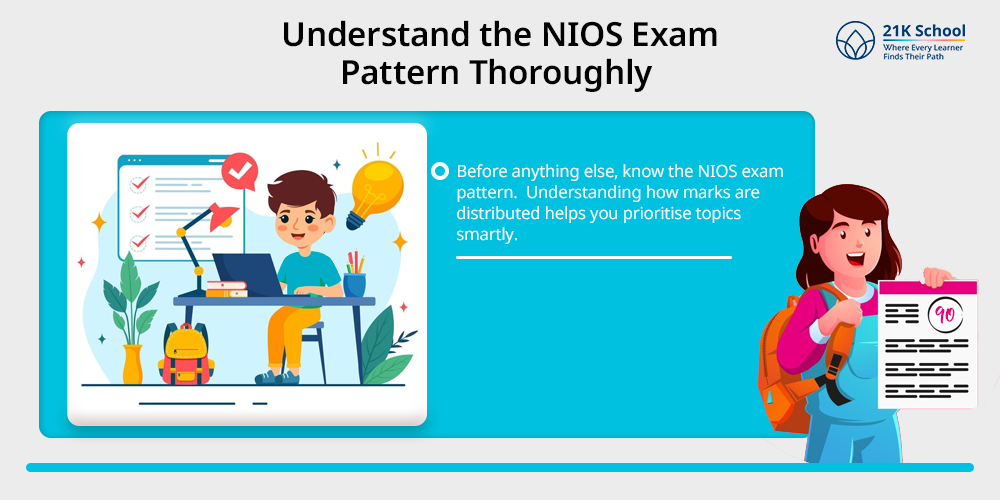
Before anything else, know the NIOS exam pattern. The NIOS follows a structured format for every subject.
Questions are usually a mix of multiple-choice, short answers, and long descriptive responses. Understanding how marks are distributed helps you prioritise topics smartly.
The NIOS question papers are designed to test understanding, not just memorisation. So, focus on conceptual clarity instead of rote learning .
2. Go Through the NIOS Syllabus Carefully
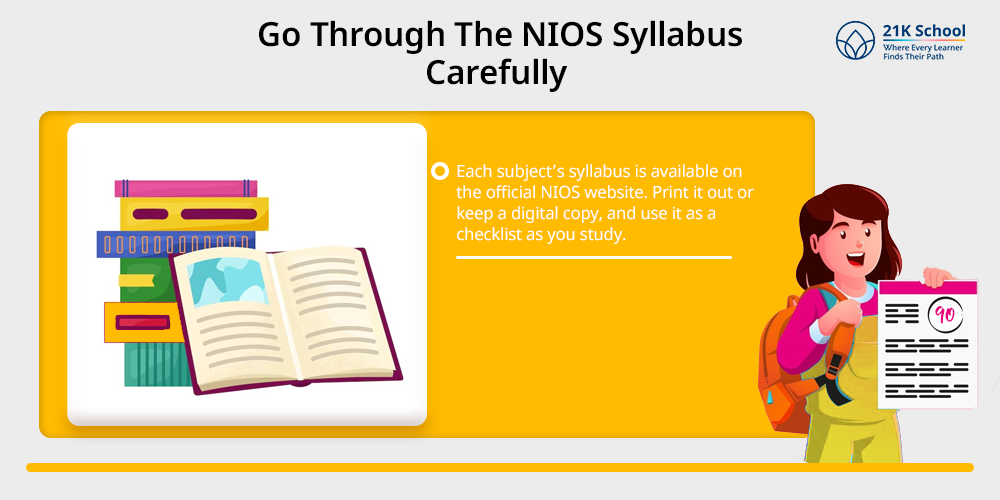
The NIOS syllabus is vast, but very well-defined. Each subject’s syllabus is available on the official NIOS website. Print it out or keep a digital copy, and use it as a checklist as you study.
Many students make the mistake of skipping the basics and jumping into tough topics. Instead, follow the syllabus chapter by chapter. This ensures you don’t leave out important portions that are frequently asked in exams.
3. Use NIOS Guidebooks and Reference Materials
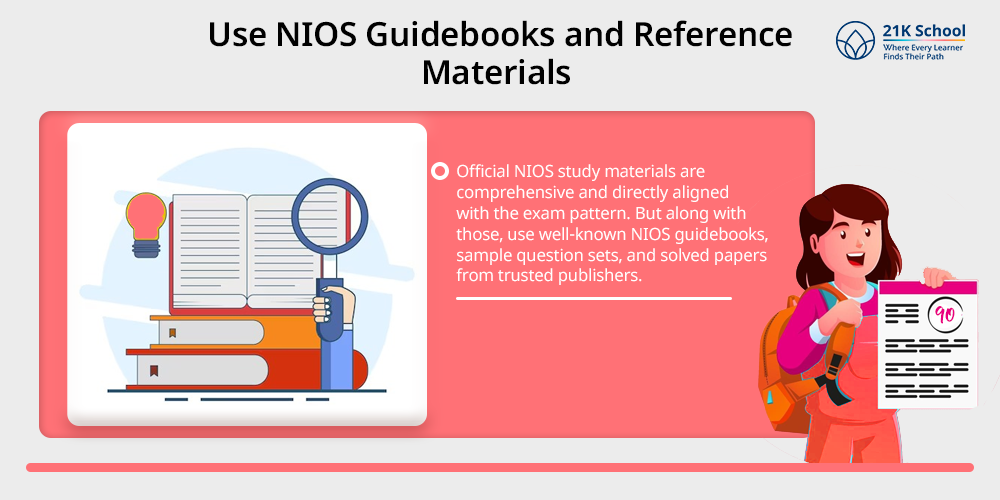
Official NIOS study materials are comprehensive and directly aligned with the exam pattern.
But along with those, use well-known NIOS guidebooks, sample question sets, and solved papers from trusted publishers. These help you understand how to present answers and how much to write for each question.
Avoid overloading yourself with too many reference books. Stick to 1–2 resources per subject and revise them thoroughly.
4. Create a Practical and Balanced Study Schedule
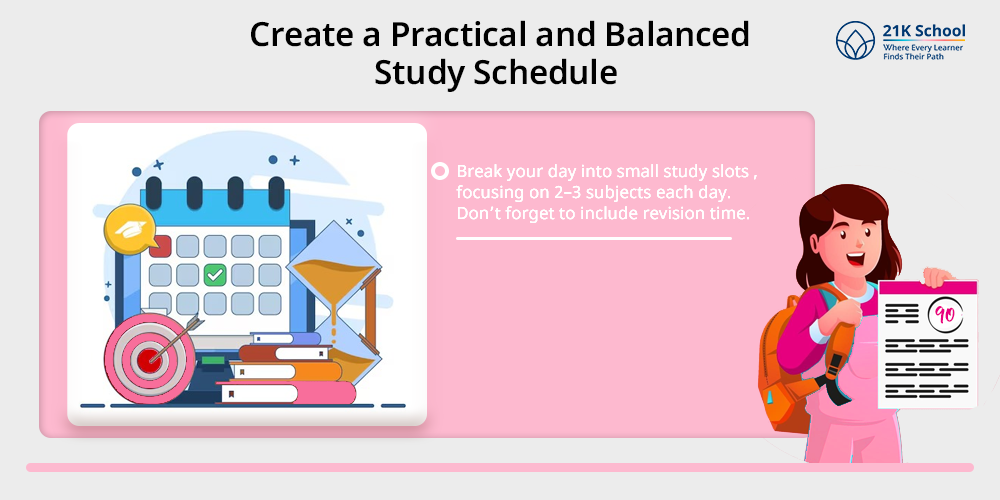
Time management is everything. If you’re preparing for NIOS board exams, a proper timetable can make all the difference. Break your day into small study slots , focusing on 2–3 subjects each day. Don’t forget to include revision time.
Make your plan realistic. If you’re working or managing other responsibilities, aim for consistency rather than long study hours. Even 3–4 focused hours daily can bring results if used well.
5. Focus on the Previous Year Question Papers
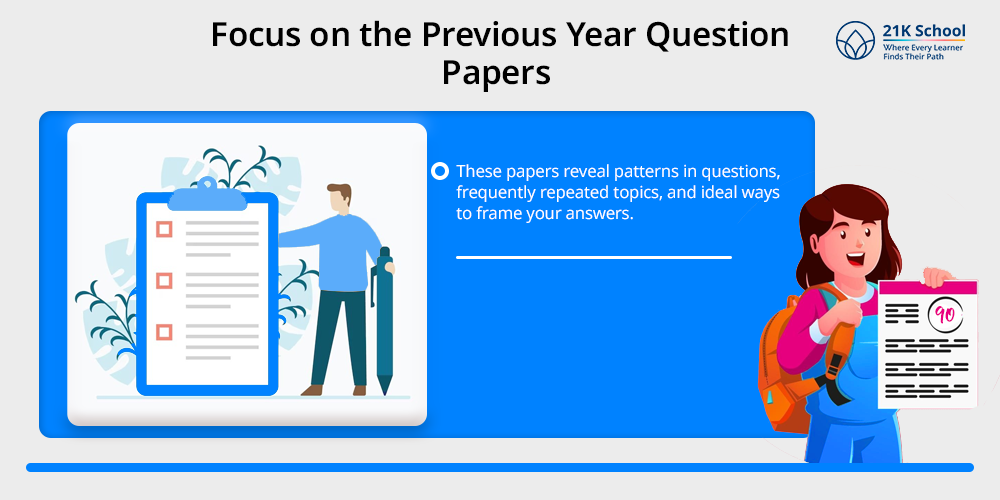
One of the best ways to prepare is by solving previous year NIOS question papers. These papers reveal patterns in questions, frequently repeated topics, and ideal ways to frame your answers.
Try to solve these papers in exam-like conditions; within the time limit, without distractions. This helps you develop speed, accuracy, and confidence.
6. Practice Writing Full-Length Answers Daily

In NIOS board exams, how you write your answers matters as much as what you write. Daily answer writing helps improve handwriting, structure, and clarity of thought. It also teaches you how to organise long answers effectively.
Use clear headings, bullet points, and diagrams where needed. Examiners appreciate neat, well-structured papers that are easy to read.
Check out: Top 8 Handwriting Tips and Tricks .
7. Revise Regularly and Track Your Progress
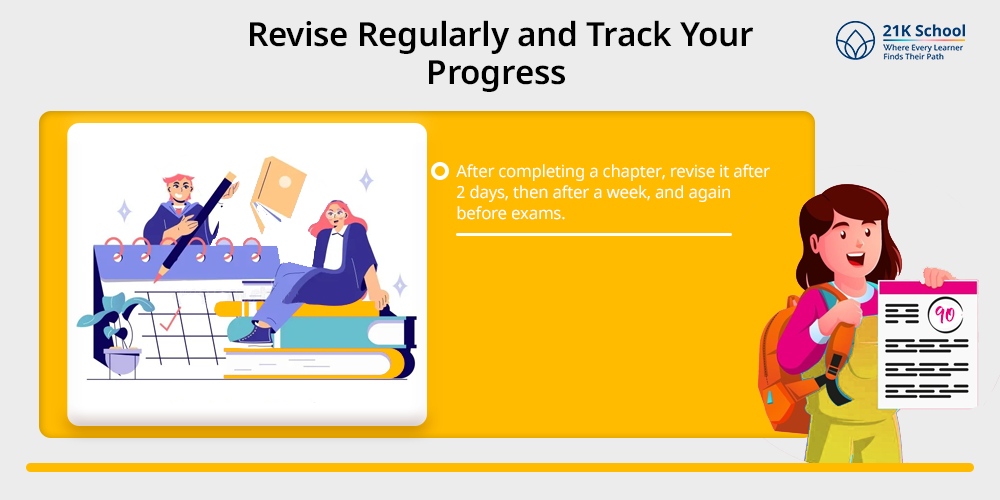
Revision isn’t just about reading again; it’s about reinforcing what you’ve already learned. After completing a chapter, revise it after 2 days, then after a week, and again before exams.
Maintain a simple progress tracker, either in a notebook or a spreadsheet. Note which chapters you’ve completed, revised, or need to revisit. This gives you a visual reminder of how far you’ve come.
Learn more about revision tips .
8. Take Mock Tests to Boost Exam Confidence
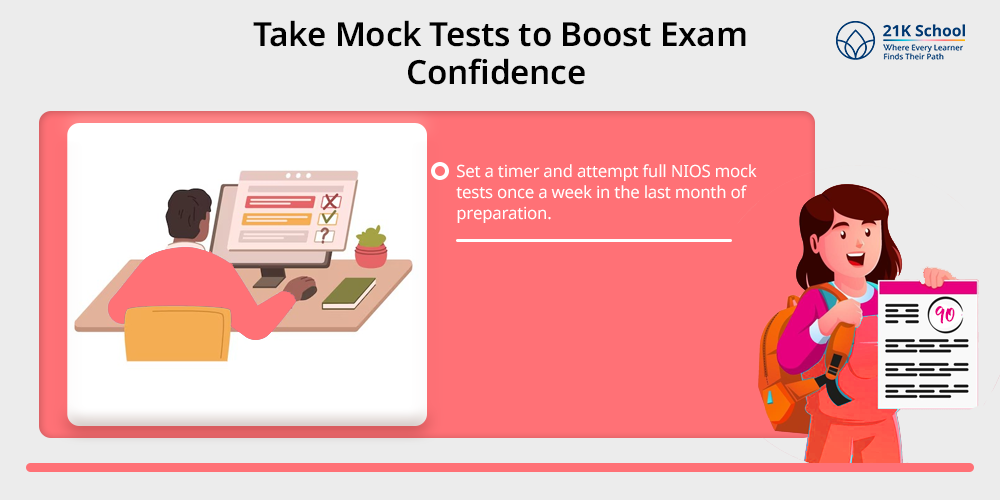
Mock tests simulate the actual exam environment. Set a timer and attempt full NIOS mock tests once a week in the last month of preparation. This helps reduce exam-day anxiety and sharpens your writing speed.
After each test, evaluate your performance. Look for areas where you’re losing marks, whether it’s content, time management, or presentation. Then, fix those gaps.
9. Stay Motivated and Mentally Prepared
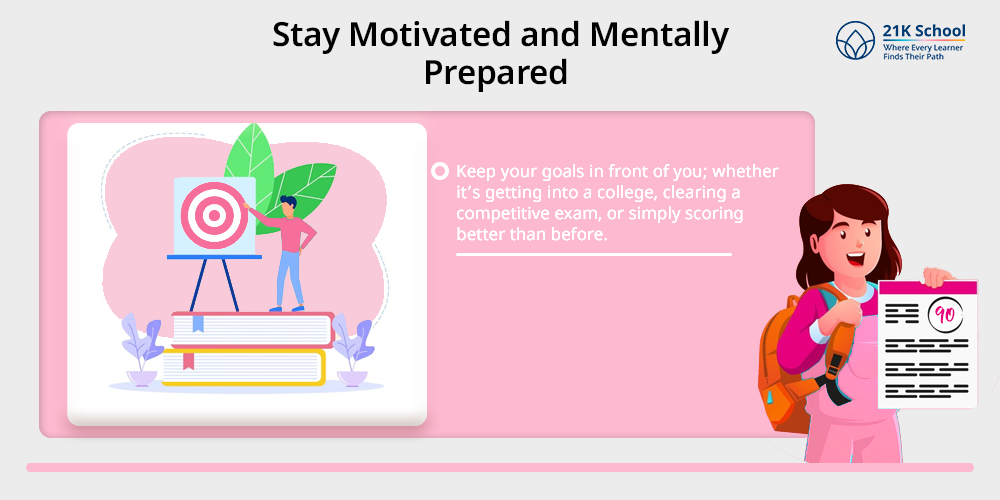
Studying alone or managing studies with other responsibilities, as many NIOS students do, can sometimes feel overwhelming.
That’s why it’s important to stay motivated. Keep your goals in front of you; whether it’s getting into a college, clearing a competitive exam, or simply scoring better than before.
Take regular breaks, sleep well, and don’t compare your journey with others. What matters is consistent effort.
Also read: How to Motivate Your Homeschooled Child
Conclusion
Scoring 90 in NIOS exams is not about being a genius, but about being focused, strategic, and determined.
Understand the exam structure, follow the syllabus closely, use the right resources, and practice regularly.
With a strong plan and daily effort, high marks are entirely achievable.

